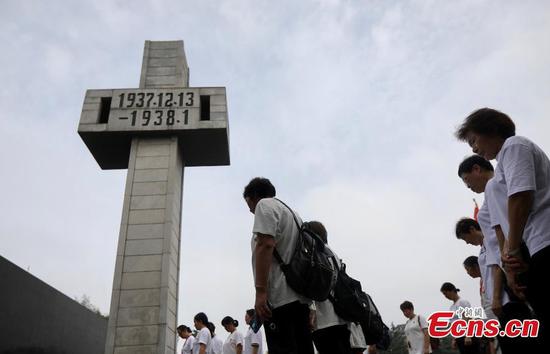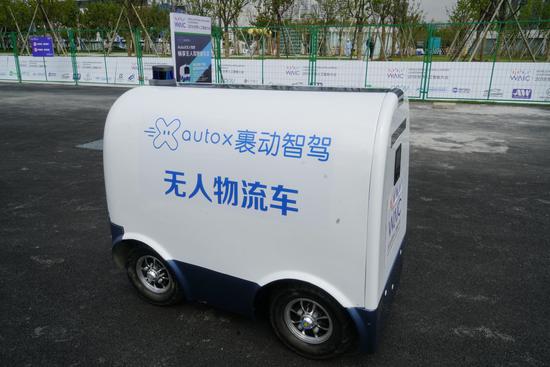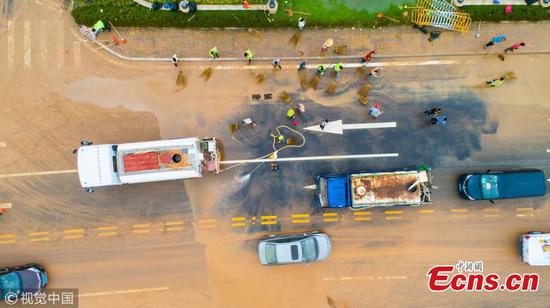Drivers and passengers alike appear to welcome the latest safety measures taken by ride-hailing company Didi Chuxing, but they question whether the measures are enough to prevent future crimes.
Didi resumed its late-night taxi service on Saturday after a weeklong pause. The company had suspended its 11 pm to 5 am shift on Sept 8 after the second incident in a span of four months in which a female passenger was killed by a driver while using its hitch service.
The ride-hailing leader has limited late-night trips to drivers who have provided at least 1,000 rides with no issues over a period of six months or longer, according to Didi's latest statement.
From Sept. 4 to 14, Didi saw nearly 7 million passengers provide new emergency contact information, which will help ensure faster communication between the police and family in case of an emergency, it said.
Real-time audio recording during trips was made compulsory on the Didi platform. A recording is made via the driver's app and uploaded to Didi's servers in encrypted form, and files are deleted after seven days if no complaints are reported, the statement said.
The company also required drivers to complete a mandatory online driver safety program and tripled its customer service staff, it said.
Didi founder and CEO Cheng Wei apologized in late August, promising to prioritize safety and customer service over pure profit growth.
The Ministry of Transportation halted all carpooling services on Sept 10, demanding that security be improved before they're allowed back again.
Zhang Yong from Hebei province has been a Didi driver in Beijing for more than two years. He usually takes night shifts because there are fewer competing drivers.
Didi should suspend its hitch service permanently, Zhang said, because hitch drivers do not work for Didi to make a living. Unlike other drivers using Didi platforms, hitch drivers usually have another job, so they have a safety net even if the company revokes permits for serious misconduct, he said.
The audio recording function can protect the passengers and drivers, Zhang added, as it provides some deterrence and evidence after incidents and can reduce verbal harassment, conflicts and fare disputes.
Zhuang Chen, who works for a financial company in Beijing, said the crimes that were committed by drivers will not prevent him from using Didi, as he needs transportation services after he gets off work, sometimes at 1 a.m.
"If I don't take Didi, I might end up in an unlicensed taxi, which is more expensive and unsafe," Zhuang said.
Didi has dominated the ride-hailing market, and more competition is needed to break this monopoly, he said, adding that only time will tell if the company's safety measures are sufficient.


















































